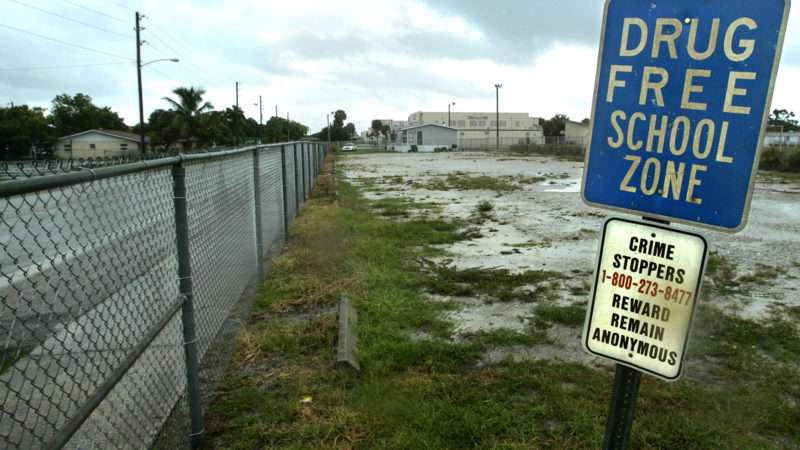
Hundreds of people in Tennessee serving outdated prison sentences for drug-free school zone offenses may soon have a shot at resentencing, following a Reason investigation four years ago that showed how harsh and illogical their sentences were.
Tennessee enacted legislation in 2020 shrinking the size of its drug-free school zones and tightening when mandatory minimum sentences could be applied, but that legislation did not include any retroactive relief for roughly 400 inmates already serving sentences. The Tennessee Senate unanimously passed a bill earlier this week that would allow those doing time for drug-free school zone offenses under the old law to petition a judge for resentencing. The bill now heads to the governor's desk to await signature.
"This is a great day for the 400 families in Tennessee who were left behind when changes to the school zone laws were enacted in 2020," said Matthew Charles, a policy associate for FAMM, a criminal justice advocacy group that supported the legislation. "Many of them would not have received the same sentence under the current law. This legislative fix creates an opportunity for a judge to give them a fairer sentence that can reunite them with their friends and loved ones."
A 2018 Reason investigation detailed how Tennessee's drug-free school zones covered wide swaths of urban areas and turned minor drug crimes into prison sentences that rivaled those for murder and rape. All 50 states have drug-free school zone laws that enhance penalties for drug offenses, but Tennessee's was among the harshest in the country. Under the old law, those zones extended 1,000 feet from every school, park, library, and day care. The zones covered 27 percent of Nashville and more than 38 percent of Memphis. They applied day and night, whether or not children were present. They applied in private residences and when one was simply driving through the zone.
Reason highlighted cases like Calvin Bryant's. Police arrested Bryant, a 20-year-old college student, in 2008 for selling 320 pills, mostly ecstasy, out of his Nashville apartment to a confidential informant. It was his first drug offense. Normally, he would have faced at least two and a half years in prison. But because Bryant lived in a housing project within 1,000 feet of an elementary school, his sentence was automatically enhanced to 17 years, 15 of them mandatory. Bryant was released in 2018 after the local district attorney agreed not to oppose his appeal.
In 2020, the state Legislature passed a bill reducing the size of these zones to 500 feet from protected locations and requiring that the mandatory minimum sentences be applied only if a defendant's conduct actually endangered children.
"I'm thrilled to see the Tennessee Legislature pass retroactive sentencing reform, especially in the current political climate," says Lauren Krisai, senior policy manager at the Justice Action Network and co-author of Reason's investigation. "It's huge. At the end of the day, lawmakers saw that the enhancements handed down for these offenses were wildly unfair, and they put politics aside to right a wrong. I hope that many of these incarcerated people are granted an earlier release and a quicker reunification with their families as a result of this bill."
The post Tennessee May Allow Resentencing for Drug-Free School Zone Offenders After <i>Reason</i> Investigation appeared first on Reason.com.







